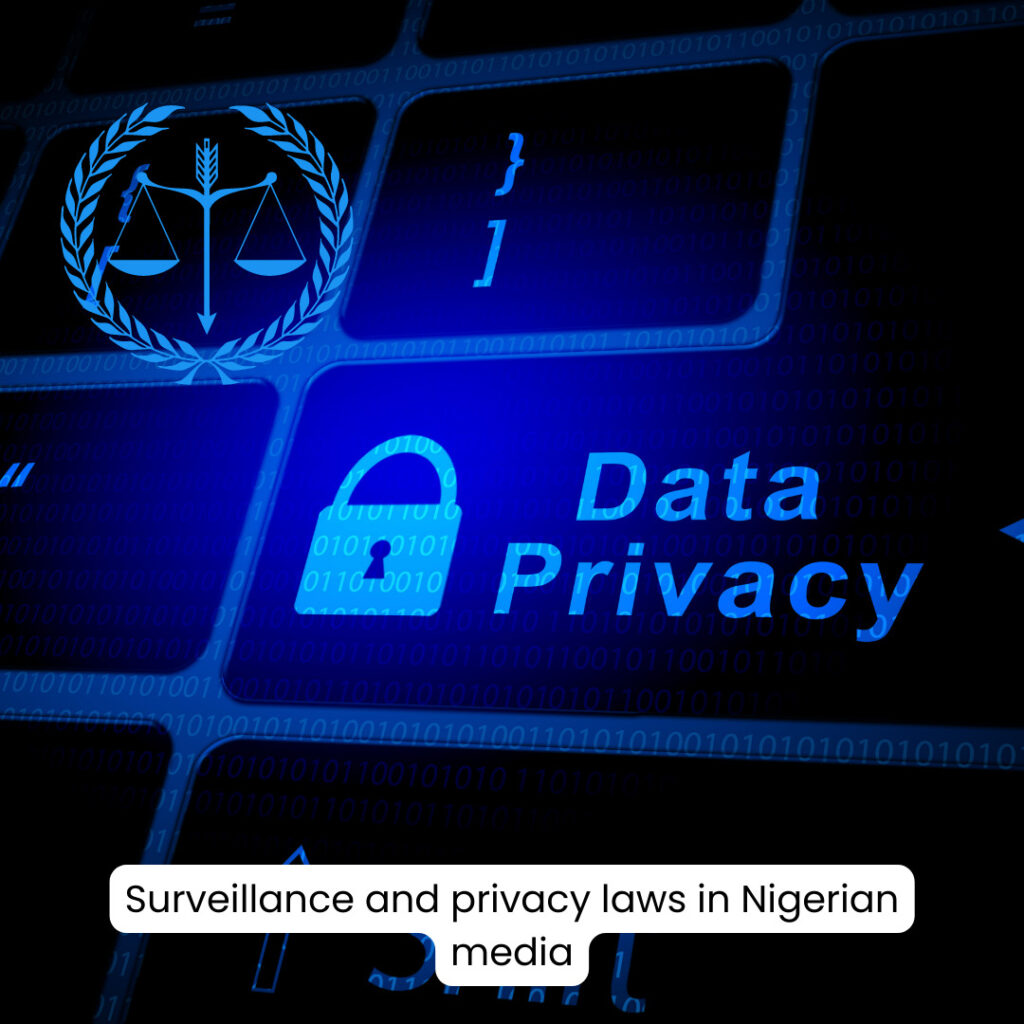Balancing Watchfulness and Privacy
In an interconnected world driven by technology, the boundaries between surveillance and privacy have become increasingly blurred. In Nigeria, a country with a growing digital landscape and a rich cultural tapestry, the delicate equilibrium between surveillance measures for security purposes and the protection of individual privacy is of paramount importance. The evolution of surveillance technologies, coupled with the need to uphold fundamental rights, has led to the formulation of privacy laws to safeguard citizens’ personal data and rights. In this article, we delve into the realm of surveillance and privacy laws in Nigerian media, exploring their significance, key considerations, challenges, and implications for both individuals and the broader society.
The Landscape of Surveillance
Surveillance encompasses the monitoring, collection, and analysis of information for various purposes, including security, law enforcement, and public safety. While surveillance measures can play a crucial role in maintaining order and preventing crime, they must be carried out within a legal framework that respects individual rights.
The Significance of Privacy Laws
Privacy laws are designed to protect individuals’ personal information, autonomy, and rights from unwarranted intrusion. In the digital age, the proliferation of data-driven technologies and the potential for abuse of personal information have underscored the need for robust privacy regulations.

Key Considerations in Nigerian Context
Surveillance and privacy laws in Nigerian media involve several key considerations:
- Balancing Rights: Striking a balance between surveillance measures necessary for security and upholding citizens’ right to privacy requires careful legal and ethical considerations.
- Data Protection: Privacy laws should encompass provisions that safeguard individuals’ personal data from unauthorized access, use, or disclosure.
- Transparency: Ensuring transparency in surveillance practices and informing the public about the extent and purpose of surveillance measures is essential.
- Judicial Oversight: Establishing mechanisms for judicial oversight of surveillance activities can prevent abuse of power and ensure accountability.
Challenges and Opportunities
Surveillance and privacy laws in Nigerian media present both challenges and opportunities:
- Emerging Technologies: Rapid technological advancements pose challenges in regulating surveillance technologies such as facial recognition, drones, and data analytics.
- Cybersecurity: Strengthening cybersecurity measures is crucial to protect against unauthorized access to sensitive personal data.
- Data Localization: Balancing the benefits of data localization with the potential risks to individual privacy requires nuanced regulation.
- Public Awareness: Raising public awareness about surveillance practices and privacy rights empowers individuals to protect their own data and advocate for stronger privacy laws.
Charting a Path Forward
The future of surveillance and privacy laws in Nigerian media holds potential:
- Comprehensive Legislation: Enacting comprehensive privacy laws that address emerging technologies and digital data protection can provide a strong legal foundation.
- International Collaboration: Collaborating with international partners to share best practices and standards in surveillance regulation can enhance Nigeria’s regulatory framework.
- Digital Literacy: Promoting digital literacy among the public can empower individuals to understand their rights, make informed choices, and protect their online privacy.
- Civil Society Engagement: Involving civil society organizations, media, and technology experts in the regulatory process can ensure a balanced and informed approach to surveillance and privacy issues.
Conclusion
The intersection of surveillance and privacy laws in Nigerian media underscores the delicate balance between security and individual rights. By establishing robust privacy regulations, promoting transparency, and staying vigilant in the face of technological advancements, Nigeria can create an environment where citizens’ personal data is protected, while ensuring that necessary surveillance measures are carried out in accordance with the law. As Nigeria’s digital landscape continues to evolve, a proactive and adaptive approach to surveillance and privacy laws will contribute to a society that values both security and individual autonomy, safeguarding the rights and freedoms of all citizens.
